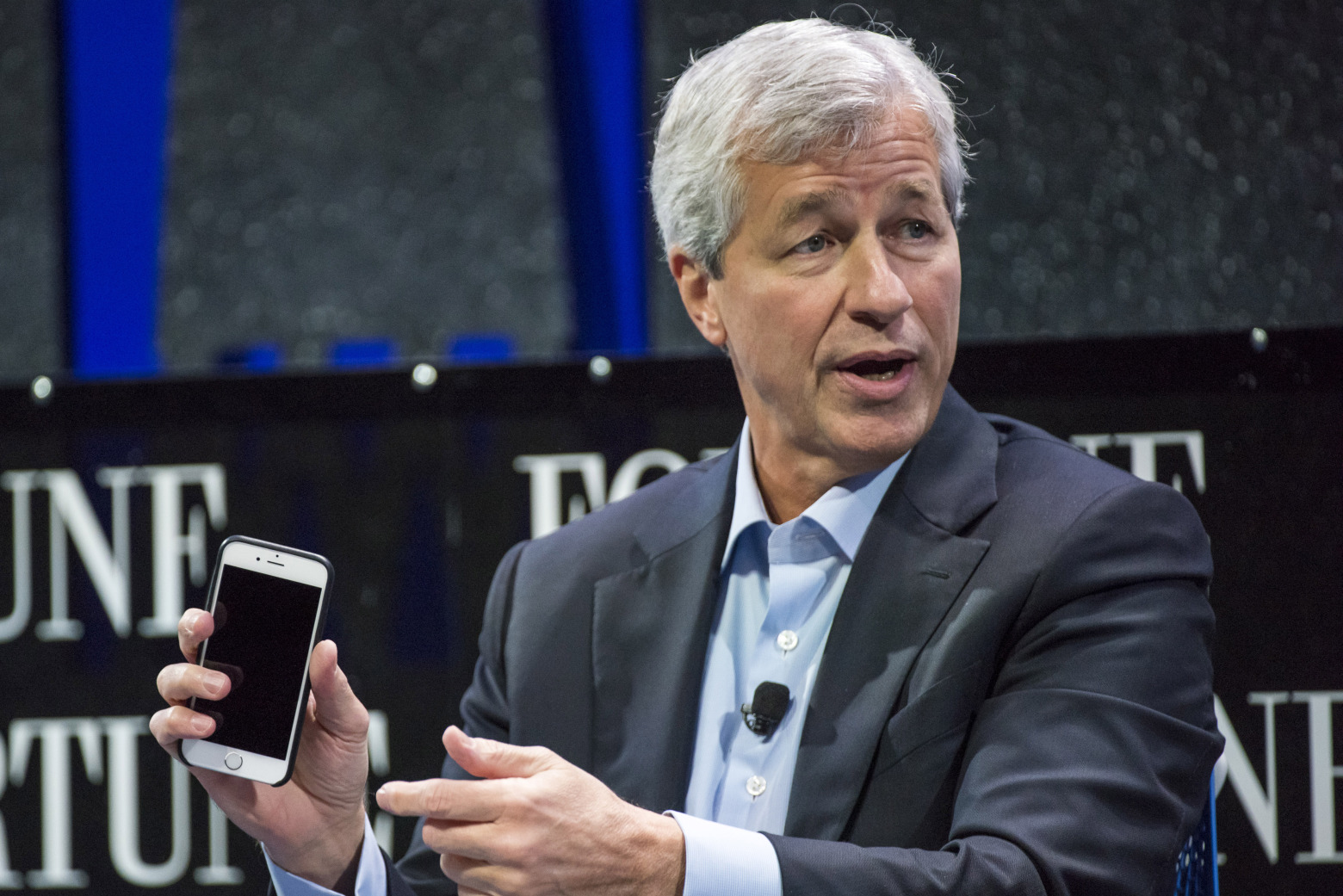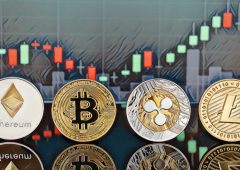JPMorgan CEO Jamie Dimon Comments Stablecoins
16.07.2025 10:00 2 min. read Kosta Gushterov
JPMorgan Chase CEO Jamie Dimon remains skeptical of stablecoins—but says ignoring them isn’t an option for the world’s most powerful bank.
Speaking during JPMorgan’s second-quarter earnings call on Tuesday, Dimon acknowledged the growing role of stablecoins in the payments ecosystem, even as he questioned their added value over traditional methods. “I think they’re real,” Dimon said, “but I don’t know why you’d want to use a stablecoin as opposed to just payment.”
Despite his reservations, Dimon made it clear that JPMorgan will not remain on the sidelines. The bank is actively developing its own blockchain-based payment tools, including a JPMorgan deposit coin and a limited-use stablecoin that is exclusively available to institutional clients.
Why JPMorgan Is Getting Involved
Stablecoins are digital tokens typically pegged to fiat currencies like the U.S. dollar and designed to maintain price stability. While Dimon doesn’t see the appeal compared to conventional payment systems, he acknowledged that understanding the technology—and being able to execute it—is now essential.
“We’re going to be involved in both JPMorgan deposit coin and stablecoins to understand it, to be good at it,” Dimon said, signaling a pragmatic approach rather than ideological support.
READ MORE:

How Can You Tell When it’s Altcoin Season?
A Defensive Move Against Fintechs
Dimon also sounded the alarm over rising competition from fintech firms that are rapidly building payment and banking infrastructures using stablecoin technology. “These guys are very smart,” he said. “They’re trying to figure out a way to create bank accounts, to get into payment systems and rewards programs.”
Given JPMorgan’s scale—it moves nearly $10 trillion per day globally—Dimon emphasized that remaining competitive requires actively engaging with emerging technologies. “The way to be cognizant is to be involved,” he added.
While Dimon has long criticized cryptocurrencies like Bitcoin, his tone on stablecoins appears to be shifting toward cautious integration, as regulatory clarity and fintech disruption reshape the future of global finance.
-
1
SoFi Returns to Crypto with Trading, Staking, and Blockchain Transfers
27.06.2025 8:00 1 min. read -
2
GENIUS Act Could Reshape Legal Battle over TerraUSD and LUNA Tokens
30.06.2025 9:00 1 min. read -
3
Whales Buy the Dip as Retail Panics: This Week in Crypto
29.06.2025 14:00 3 min. read -
4
History Shows War Panic Selling Hurts Crypto Traders
28.06.2025 18:30 3 min. read -
5
Ripple Faces Legal Setback as Court Rejects Bid to Ease Penalties
26.06.2025 16:54 1 min. read
Citigroup Explores Launching Stablecoin as Banks Embrace Crypto Shift
Citigroup is evaluating the potential launch of its own U.S. dollar-backed stablecoin, signaling a growing shift in sentiment among traditional financial institutions toward digital assets.
Crypto Cycles are Evolving: Analyst Explains Why Old Patterns no Longer Work
According to crypto analyst Atlas, the traditional four-year cycle that once defined Bitcoin and altcoin market behavior is now obsolete.
Kraken Launches U.S. Crypto Derivatives Platform, Eyes Broader Market Expansion
Kraken has officially launched its U.S.-regulated crypto derivatives platform, marking a major step toward merging traditional finance tools with digital asset markets.
How to Earn Yield Holding USDC: A 2025 Guide
If you’re holding USDC and want to maximize your yield, Deribit now offers rewards for eligible users who store USDC on its platform.
-
1
SoFi Returns to Crypto with Trading, Staking, and Blockchain Transfers
27.06.2025 8:00 1 min. read -
2
GENIUS Act Could Reshape Legal Battle over TerraUSD and LUNA Tokens
30.06.2025 9:00 1 min. read -
3
Whales Buy the Dip as Retail Panics: This Week in Crypto
29.06.2025 14:00 3 min. read -
4
History Shows War Panic Selling Hurts Crypto Traders
28.06.2025 18:30 3 min. read -
5
Ripple Faces Legal Setback as Court Rejects Bid to Ease Penalties
26.06.2025 16:54 1 min. read

